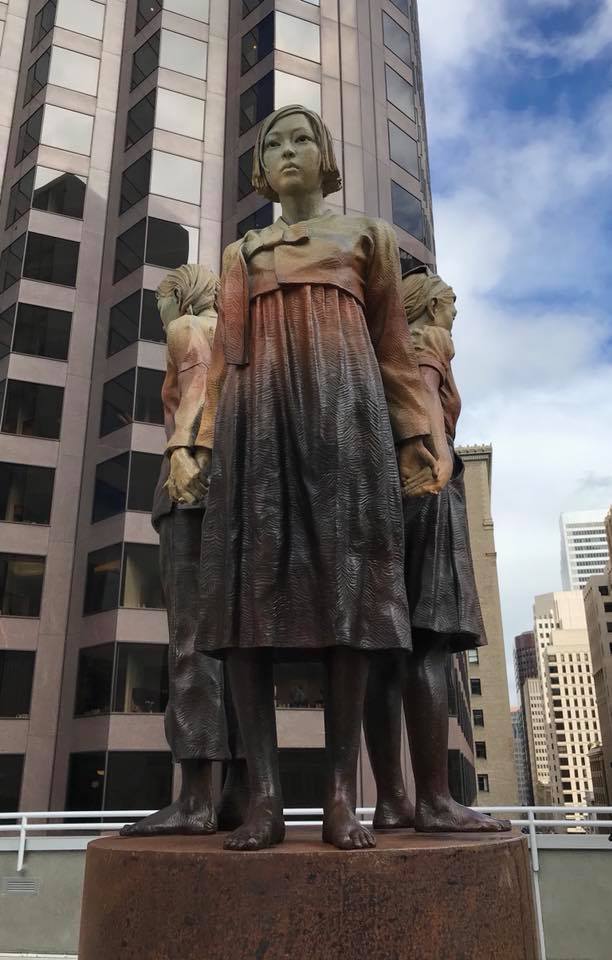 |
|
The comfort women memorial in San Francisco’s in St. Mary’s Square
|
London Breed says one side cannot “unilaterally end a relationship” of over 60 years
After the Japanese city of Osaka severed its sister-city relationship with San Francisco to protest the installation of a comfort women memorial, the mayor of San Francisco countered with a statement released on Oct. 4. “The San Francisco Comfort Woman Memorial is a symbol of the struggle faced by all women who have been, and are currently, forced to endure the horrors of enslavement and sex trafficking,” the statement said. “These victims deserve our respect and this memorial reminds us all of events and lessons we must never forget,” mayor London Breed said in the statement. “One Mayor cannot unilaterally end a relationship that exists between the people of our two cities, especially one that has existed for over 60 years. In our eyes, the Sister City relationship between San Francisco and Osaka continues today through the connection of our people, and San Francisco looks forward to strengthening the bonds that tie our two great cities together.” On Oct. 2, Osaka mayor Hirofumi Yoshimura announced he was ending Osaka’s sister-city relationship with San Francisco, which goes back to 1957, to protest the comfort woman memorial set up in St. Mary’s Square, in downtown San Francisco. In an open letter, Yoshimura cited “disagreement among historians when regarding the historical facts such as the number of ‘comfort women,’ the degree to which the former Japanese army was involved, and the extent of the wartime harm” and described the memorial as “containing inscriptions that present uncertain and one-sided claims as historical facts.” Yoshimura wrote that the memorial does little more than engage in Japan-bashing, without facing up to the past. The inscription on San Francisco’s comfort women memorial reads as follows: “This monument bears witness to the suffering of hundreds of thousands of women and girls euphemistically called ‘comfort women,’ who were sexually enslaved by the Japanese Imperial armed forces in 13 Asian-Pacific countries from 1931 to 1945.” In addition to calling this description inappropriate, the city of Osaka attempted to muddy the waters by claiming that the behavior of other countries’ armies had also been problematic. “The issue of sex on the battlefield is not a problem particular to the former Japanese army. This problem was present during World War II with the American, British, French, German, and Soviet armies,” the letter said. The memorial was set up through a donation of a statue to the city by the Comfort Women Justice Coalition, an NGO in San Francisco, in Sept. 2017. The statue consists of three young girls –Korean, Chinese and Filipina – holding hands in a circle, while the late Kim Hak-sun looks on. Kim was the first former comfort women living in Korea to testify to her experience under her own name. The San Francisco city council accepted the donation of the statue in Nov. 2017, which received the approval of then mayor Edwin Lee. Since then, Osaka has stridently criticized San Francisco and threatened to severe the sister-city relationship. Japanese Prime Minister Shinzo Abe even said he planned “to ask the San Francisco mayor not to accept the donation of the comfort women statue.” After Lee’s unexpected death last December, Osaka started lobbying the new mayor to take down the memorial. After its lobbying efforts proved ineffective, Osaka finally and unilaterally terminated the sister-city relationship. On Oct. 5, Yoshimura responded to San Francisco’s statement by saying that “the administrative relationship is over, but exchange can continue in the private sector.” By Cho Ki-weon, Tokyo correspondent Please direct comments or questions to [english@hani.co.kr]






